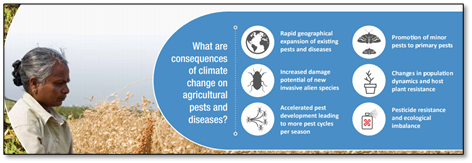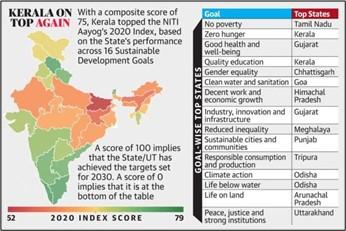Wednesday, 9th June 2021
ECI pushes pending Electoral Reforms
In News
Election Commission of India (ECI) has written to the Law Ministry urging it to expeditiously address electoral reforms that are pending with the government.
https://cdn.s3waas.gov.in/s384d9ee44e457ddef7f2c4f25dc8fa865/uploads/2021/03/2021032345.pdf
E-content development for children with disabilities
In News
Education Minister approved the release of guidelines for the development of e-content for children with disabilities.
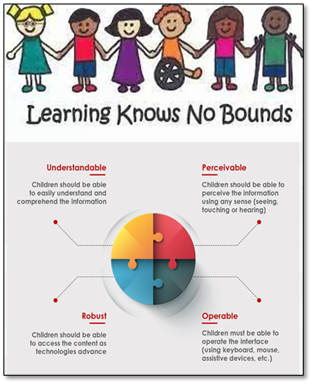
About the News
- Vision: The aim of the guidelines is to fulfil the goal of inclusive education. The guidelines envisage development of special e-content for visually and hearing-impaired students, along with extensive use of radio, community radio and podcasts.
- It also includes adapting textbooks into Accessible digital textbooks (ADTs) and uploading of QR coded energised digital textbooks for grades 1 to 12 on DIKSHA portal.
- Four principles: The guidelines emphasized that the e-Content for Children with Disabilities (CwDs) should be developed based on the four principles of perceivable, operable, understandable and robust.
- e-VIDYA programme: The guidelines have been developed as part of the PM e-VIDYA programme, which aimed at the development of special e-content for the children with disabilities (CwDs).
What is Inclusive Education?
- Inclusive education (IE) is a new approach towards educating the children with disability and learning difficulties with that of normal ones within the same roof. It seeks to address the learning needs of all children with a specific focus on those who are vulnerable to marginalization and exclusion. This is possible only in flexible education system that assimilates the needs of diverse range of learners and adapts itself to meet these needs.
- Need for Inclusive Education in India: As per 2011 Census, there were 8 million persons with disability (divyangjan) in India, which corresponded to 2.21 per cent of the total population of 1.2 billion. Out of the total 26.8 million Persons with Disabilities (PwDs), only 14.7 million (55 per cent) were literate and 12.2 million (45 per cent) were illiterate. It is also possible that many cases of not attending school and disabilities are not reported during census due to societal pressures.
- UNICEF’s Convention on the Rights of Persons with Disabilities expects the governments to align laws and policies with the convention and regularly collect and analyse data to ensure children are reached with effective services.
Sources: https://www.unicef.org/education/inclusive-education
India elected to the UN Economic & Social Council for the term 2022-24
In News
India has been elected to the Economic and Social Council, one of the six main organs of the United Nations, for the 2022-24 term.
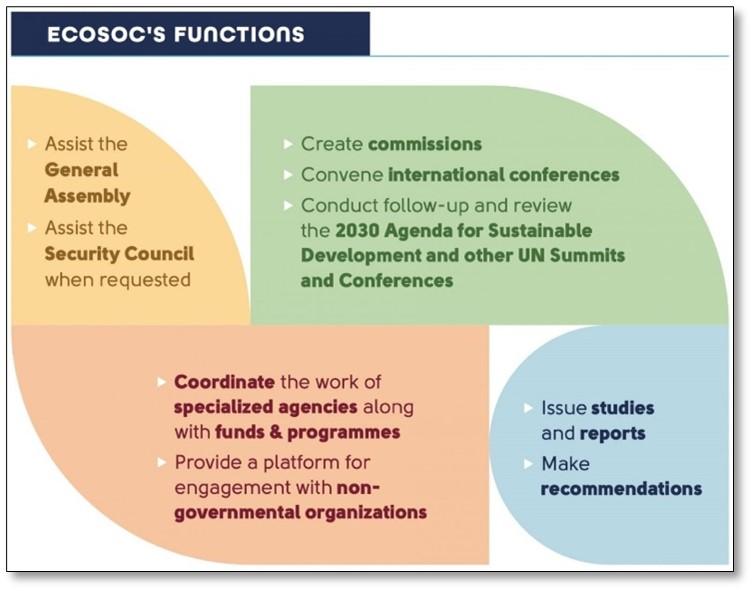
About the News
- India was elected in the Asia-Pacific States category along with Afghanistan, Kazakhstan and Oman in the elections.
- India is currently serving the 2021-22 term as a non-permanent member of the UN Security Council and will assume the Presidency in August.
- ECOSOC’s 54 members are elected for three-year terms by the General Assembly. Seats on the Council are allotted based on geographical representation with 14 allocated to African states, 11 to Asian states, six to eastern European states, 10 to Latin American and Caribbean states and 13 to western European and other states.
About Economic and Social Council (ECOSOC)
- It is one of the 6 principal organs of the United Nations System established by the UN Charter in 1945.
- ECOSOC coordinates economic, social, and environment related work of the fourteen United Nations specialized agencies, functional commissions and five regional commissions.
- It serves as the central forum for discussing international economic and social issues, and for formulating policy recommendations addressed to Member States and the United Nations system.
- It is the central platform for fostering debate and innovative thinking, forging consensus on ways forward, and coordinating efforts to achieve internationally agreed goals.
- It is also responsible for the follow-up to major UN conferences and summits.
Sustainable public procurement
In News
On World Environment Day, a new product category of Green Room Air Conditioners was launched on the Government e-Marketplace (GeM).
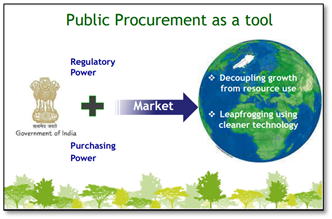
About the News
- The addition of Green Room Air Conditioners on GeM is an example of GeM being a futuristic and technology driven platform, focusing on environmental, social and economic pillars of sustainable public procurement.
- The GeM portal will enable and encourage all central and state government agencies to buy efficient and environment friendly green ACs. The purchase of Green RACs shall be a voluntary approach.
What is Sustainable Public Procurement (SPP)?
- Definition: Sustainable procurement is a process whereby public sector meets its needs for goods, services, works and utilities in a way that achieves value for money on a whole life-cycle basis in terms of generating benefits not only to the organization, but also to society, whilst significantly reducing negative impacts on the environment (UNEP, 2015).
- The UNEP-led One Planet Network Sustainable Public Procurement (SPP) programme is a voluntary global multi-stakeholder partnership in which various parties - governmental, non-governmental, public, and private, agree to work together in a systematic way with the aim to promote and accelerate the implementation of sustainable public procurement globally.
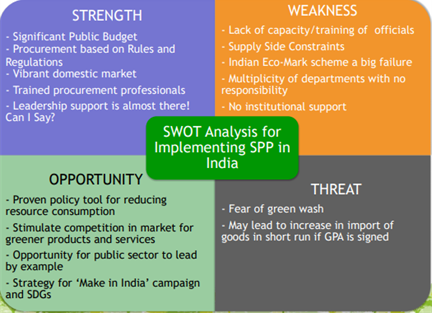
Need for Sustainable Public Procurement (SPP) in India
- Fulfilling SDG targets: One of the targets of Sustainable Development Goal 12, Sustainable Consumption and Production (SCP), is: "Promote public procurement practices that are sustainable, in accordance with national policies and priorities". Sustainable Public Procurement is therefore seen as one of SCP’s vital pillars.
- Opportunity for government: Public procurement spend in India is nearly 15-20% of its GDP. Introducing SPP to this huge quantum of government procurement will further complement the country's climate policy It can provide financial savings for government buyers and meet evolving environmental challenges by moving towards a circular economy.
- Resource Efficiency: SPP can play a large role in driving resource efficiency with its potential to reduce waste and limit energy and carbon emissions.
- Socio-Economic benefits: SPP is not just ‘green’ procurement but it involves socially and ethically responsible procuring while minimizing environmental impact through the supply chain and maximizing economic benefits. It supports fair and sustainable economic growth and delivers social benefits through procurement.
What has been done in India?
A Task Force on Sustainable Public Procurement (SPP) has been constituted by Department of Expenditure with the following targets:
- Review international best practices in the area of Sustainable Public Procurement
- Inventorise the current status of SPP in India across government organizations
- Prepare a draft Sustainable Procurement Action Plan
- Recommend an initial set of product / service categories (along with their specifications) where SPP can be implemented.
Elements for Sustainable Procurement Action Plan in India
- Definition of Sustainable: Understanding relevant impacts of a product on the environment, society and human health besides economic impact, and taking responsibility for these impacts is fundamental to begin SPP journey. The government must come out clear on these priorities so that sustainability conveys the same meaning to all stakeholders involved in the procurement process.
- SPP Policy Framework: A clear and concise SPP policy framework legitimizes procurement of sustainable goods by public procurers without fear of retribution in the future by oversight bodies. The Plan should clearly specify national and international obligations that apply to public bodies in the context of public procurement and internalize them in SPP policy.
- List of Prioritised Products: To maximize outcome, it is important to prioritize product categories based on national context, spend analysis, risks mitigation opportunities, market readiness, degree of market influence, etc. Having prioritized them, the plan should specify product criteria for sending unambiguous signal to the market and channelizing investment in design, development, and manufacturing of those products.
- Institutional Governance Mechanism: Creation of a separate institute/cell, provided with adequate teeth and resources, both financial & human, and mandate to assign, govern and review, would go a long way in fast-tracking implementation of SPP.
- Training & Capacity Building: Identifying training needs of different stakeholders, designing appropriate training modules and delivering them in a time-bound manner are prerequisites for launching SPP.
Conclusion
Public procurement wields enormous purchasing power, accounting for an average of 12 percent of gross domestic product (GDP) in OECD countries, and up to 30 percent of GDP in many developing countries. Leveraging this purchasing power by promoting public procurement practices that are sustainable, in accordance with national policies and priorities, plays a key role in achieving Sustainable Consumption and Production (SDG 12) and in addressing the three pillars of Sustainable Development.
Question: What is sustainable public procurement? Analyse the factors to be considered while making sustainable public procurement policy in India.
Primary Sources: https://www.manufacturingtodayindia.com/products-suppliers/10719-green-air-conditioners-launched-on-government-e-marketplace
http://sustainableprocurement.blogspot.com/
Secondary Sources: https://www.oneplanetnetwork.org/sustainable-public-procurement
This Day in History- Birsa Munda
On June 9, 1900, tribal freedom fighter Birsa Munda died at the age of 24 in Ranchi jail during his trial. Birsa Munda spearheaded a revolt against the British in areas now bordering Bengal, Bihar and Jharkhand. Born in the tribal belt of the Chotanagpur Plateau, Birsa Munda started fighting for tribal rights when he was just a teenager. Birsa Munda studied in a German Mission School, but he dropped out in a few years. Birsa Munda started his own sect called 'Birsait'. Many among the Munda and Oraon tribes joined his sect and his movement. Birsa Munda also participated in anti-missionary and anti-establishment activities.
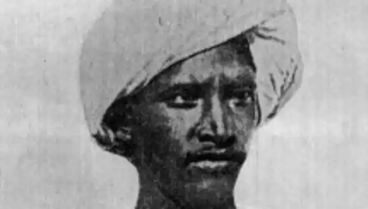
Image of the Day - Kempegowda International Airport
The Kempegowda International Airport (KIA) or Bengaluru airport achieved the energy neutral status. The KIA met 98% of its energy requirement through renewable sources. The status was achieved through solar installation at rooftops of utility buildings, car parks, ground-mounted solar installation at airside, rooftops of cargo buildings and project offices. Delhi Airport became the first Carbon Neutral Airport in the Asia Pacific region 2016. The Airport Council International’s (ACI) Airport Carbon Accreditation program provides accreditations to airports and is the global standard for carbon management in the airport industry.
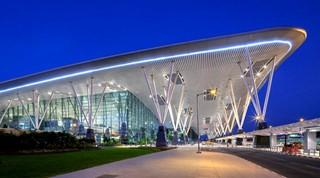
Non-Tax Revenue (NTR)
- Context: Dividend, or surplus transfer from the Reserve Bank of India has become one of the biggest sources of non-tax revenues (NTR)
- Non-Tax Revenue is the recurring income earned by the government from sources other than taxes.
- The most important receipts under NTR are:
- interest receipts (received on loans given by the government to states & UTs, railways, etc.
- dividends and profits received from public sector companies.
- The other sources include:
- Transfer of surplus from the RBI
- Petroleum license (exploration and production)
- Fees for communication services and broadcasting
- Power supply fees
- Examination fees (collected by SSC/UPSC)
- Receipts related to defence services etc.
Primary source: https://www.financialexpress.com/what-is/non-tax-revenue-meaning/1762795/
Content Delivery Network (CDN)
- Context: Major Internet outage downs top sites globally.
- CDNs are an important part of the internet infrastructure as they act as proxy servers where companies cache certain data closer to the end-user to offer better services.
- It is a highly distributed platform of servers that helps minimize delays in loading web page content by reducing the physical distance between the server and the user.
- A recent Internet outage world-wide affected some of the biggest services including Amazon, Twitter, Pinterest, CNN, and Reddit that was traced to a technical error in a content delivery network (CDN) run by Fastly (Fastly is an American cloud computing services provider).
.png)
Primary source: https://www.akamai.com/us/en/cdn/what-is-a-cdn.jsp#:~:text=A%20CDN%20(Content%20Delivery%20Network,content%20without%20slow%20loading%20times.
Picture Source: https://strivecast.com/content-delivery-network-cdn/
Pandav Leni Complex
- Context: discovery of 3 more caves at Trirashmi Buddhist cave complex, Nashik, Maharashtra by ASI.
- The Pandav Leni Complex or Nasik Caves are a cluster of 25 caves carved out of the Trirashmi Hill between the 2 century BC and 6 century AD.
- Most of the caves are viharas except for Cave 18 which is a chaitya of the 1st century BCE.
- The caves have verandahs and square stone platform for monks to facilitate their meditation.
- Other caves in the area are Karla Caves, Bhaja Caves, Patan Cave, and Bedse Caves.
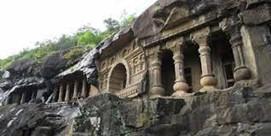
Picture Source: https://journalsofindia.com/pandav-leni-buddhist-caves/
Untangling the extradition knot
Essence: Editorial is highlighting the legal hurdles in extraditing fugitive offenders. In this context, case of Mr. Mehul Choksi is used to explain laws involved & intricacies of administrative efforts. Section-9 of the Citizenship Act says about the Termination of citizenship. Clause (1) states that “any citizen of India who by naturalization, registration or otherwise voluntarily acquires the citizenship of another country shall, cease to be a citizen of India.” Indian government brought, the Fugitive Economic Offenders Act, 2018 to deter fugitive economic offenders from evading the law in India by staying outside the jurisdiction of Indian courts/taking citizenship in other territories.
According to the Ministry of External Affairs, India currently has 47 Extradition Treaties in force. Fugitive offenders such as Vijay Mallya and Nirav Modi have made a mockery of global legal systems. there is a need for a global law where extradition treaties can be waived while dealing with fugitive offenders under the guidelines of internal agencies. There should be no safe havens for fugitive offenders.
Why you should read this article?
- To understand the challenges faced by Indian agencies in extradition of fugitive offenders.
- To know about the provisions under Citizenship act, which are used as shield by these offenders.
- To gain insights on Fugitive economic offenders law.
Article Link: https://www.thehindubusinessline.com/opinion/untangling-the-extradition-knot/article34764070.ece
Towards a stronger mental health strategy
Essence- In today’s world, mental health is becoming a major challenge which is also responsible for reduction in life expectancy in patients with severe mental disorder. Though India and many other countries have several mental health policies, but it seems we need to do more as this issue has been exacerbated by COVID-19 recently. According to several studies, government allocation on mental health is higher in developed countries than in developing ones, India is one of them. This may be due to lack of focused attention given to mental health consequently, India has lower mental health indicators. Article further explains the meaning of mental illness and mentions reasons why mental health is not a primary concern for developing economies like India. Article also discusses why metal illness is more prevalent in southern than to the northern states. To tackle the situation, India needs to develop a road map for mental health awareness with improving government involvement and increasing private sector participation because we need to take this issue seriously specially in the wake of COVID-19 which has made the situation more challenging.
Why you should read this article?
- To Understand what metal illness is and how COVID-19 has exacerbated this challenge and get an overview of mental illness around the world and particularly India.
- To know the reasons why mental illness is not a primary concern for developing economies like India and why there is north-south divisions in mental health illness.
- To know the steps taken by the government and what could be done to improve further involvement of government and private companies.
Article Link: https://www.thehindu.com/opinion/op-ed/towards-a-stronger-mental-health-strategy/article34755470.ece
‘The Path Isn’t a Cakewalk’: A Firebrand IFoS Officer On How to Battle Corruption
- Sanjiv Chaturvedi has regularly been fighting against the corruption by exposing the corrupt and illegal activities under his jurisdiction.
- He is of the view that to take on corruption, one had to hit it at the very top.
- By exposing the corruption at the top level of hierarchy you challenge the entire system and create fear among the wrong doers at all levels.
- The cost for the fight has been filing of several charge sheets against him, blocked promotions and punishment postings.
- There have been four occasions when his suspension has been revoked by presidential intervention—a rare feat for any civil servant across the country.
- Despite repeated allegations and investigations by the Central Bureau of Investigation, he has emerged with a clean chit every time.
- In 2015-16—he was awarded the prestigious Ramon Magsaysay Award for emergent leadership.
- He has been recognised for “his exemplary integrity, courage and tenacity in uncompromisingly exposing corruption in public office”
What keeps me going?
- “An inner motivation that I’ve stayed true to my principles,” shares Chaturvedi.
- Support of his subordinates has kept him motivated through dark times.
His message to the youth:
- Whether one has been sent on a punishment posting or one that requires your utmost potential, everyone should give their best.
- Every transfer is part of the career and as a servant of the nation, it is one’s duty to do it with utmost commitment and professionalism.
- If one remains true to their principles, things like suspension orders, dismissals and harassments amounts to nothing. They cannot break one’s spirit if their intentions are governed with best interests for the country.
- At the end of the day, it is one’s conscience that they must live with.
Important Keywords: Dedication to duty, Probity, Conscience, Fortitude, Perseverance.
Share the article
Get Latest Updates on Offers, Event dates, and free Mentorship sessions.

Get in touch with our Expert Academic Counsellors 👋
Frequently Asked Questions
UPSC Daily Current Affairs focuses on learning current events on a daily basis. An aspirant needs to study regular and updated information about current events, news, and relevant topics that are important for UPSC aspirants. It covers national and international affairs, government policies, socio-economic issues, science and technology advancements, and more.
UPSC Daily Current Affairs provides aspirants with a concise and comprehensive overview of the latest happenings and developments across various fields. It helps aspirants stay updated with current affairs and provides them with valuable insights and analysis, which are essential for answering questions in the UPSC examinations. It enhances their knowledge, analytical skills, and ability to connect current affairs with the UPSC syllabus.
UPSC Daily Current Affairs covers a wide range of topics, including politics, economics, science and technology, environment, social issues, governance, international relations, and more. It offers news summaries, in-depth analyses, editorials, opinion pieces, and relevant study materials. It also provides practice questions and quizzes to help aspirants test their understanding of current affairs.
Edukemy's UPSC Daily Current Affairs can be accessed through:
- UPSC Daily Current Affairs can be accessed through Current Affairs tab at the top of the Main Page of Edukemy.
- Edukemy Mobile app: The Daily Current Affairs can also be access through Edukemy Mobile App.
- Social media: Follow Edukemy’s official social media accounts or pages that provide UPSC Daily Current Affairs updates, including Facebook, Twitter, or Telegram channels.

